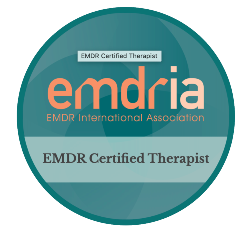What Is Trauma-Informed Care?
Many times as therapists it feels as if we peel back layer after layer of anxiety, fear, and anger, to uncover the traumas that lay at their core. It is shocking how widespread trauma is, and how devastating its generational impacts can be. Trauma-Informed care is a foundation for quality trauma treatment that is used by many therapists to address trauma. Many therapies, such as EMDR Therapy, incorporate principles of Trauma-Informed care within the approach.
Trauma is subjective—some people have a greater capacity for stress than others—and can come in many forms. For some, it’s childhood abuse and neglect, or exposure to sexual violence—for others, it’s relentless bullying at school or the tragic death of a loved one. A majority of people will experience at least one traumatic event during their lifetime, the effects of which can last for years. In addition, we are regularly exposed to everything from violent crime, mass shootings, natural disasters, and wars that displace thousands of people via the news & social media.
Trauma-Informed Care is a response to that reality.
Treatment & Care
Historically, the treatment of trauma has emphasized symptom management and pathology. Often, this focus resulted in treatments that prioritized numbing people from the impact of trauma—a course of action that many of them were already taking through alcohol abuse or addiction to narcotics and other substances.
Trauma-Informed Care replaces that approach with an emphasis on empowering individuals and helping them re-establish a sense of safety and connectedness with others. In addition to the foundation of Trauma-Informed Care, at Greenwood Counseling Center, we provide EMDR Therapy to address the trauma in a caring, comprehensive and effective way. We build all of our care, including EMDR Therapy, on the principles of Trauma-Informed Care. The CDC and SAMHSA National Center for Trauma-Informed Care establishes six principles to guide care:
Six Principles of Trauma-Informed Care
Safety
A special emphasis is placed on re-establishing a sense of safety in individuals. This means a space that is free from judgment and threat of harm—where they can express their feelings and work through them.
Trustworthiness & Transparency
It is important for people who have experienced trauma to learn how to establish healthy relationships, built on transparency and consistency. Close care must be given to setting expectations and ensuring they are met.
Peer Support
Many mental health issues that result from trauma are linked to isolation and depression. It is also common for people to feel as if they are ‘broken’–by giving them access to peers who are struggling with similar issues, they may be able to develop a sense of community and joy.
Collaboration & Mutuality
This principle teaches that individuals and service providers should work together to identify, understand, and address the impact trauma has on the individual’s life. Service providers are there to teach tools that can be used to manage stress, and guide the self-healing process.
Empowerment & Choice
It is important for people who have suffered through trauma to find a sense of agency in their lives. Sometimes, this is a matter of helping people learn to view themselves as the hero of their own story, rather than a victim.
Cultural, Historical & Gender Issues
Trauma-Informed Care teaches that there are differences in the way a person’s culture, history, and gender may impact their experiences—that trauma is colored by personal experience, and context. As a result, Trauma-Informed Care may encourage individuals to embrace relevant religious, spiritual, or cultural tools and methods for healing.
Benefits of Trauma-Informed Care
Trauma-Informed Care has a proven track record of success. Successful treatment of your Trauma can improve not only the mental well-being of a person, but also their physical health. Accordingly, the goal of Trauma-Informed Care is always to identify, understand, and resolve traumatic memories.
Physical Benefits
- Improved Sleep
- Greater Focus
- Reduced Reliance on Medication
- Lower Risk of Diabetes
- Lower Risk of Heart Failure
- Lower Risk of Obesity
Emotional Benefits
- Improved Mood
- Sense of Agency
- Increased Joyfulness
- Reduced Anxiety
- Increased Connectedness
- Improved Self-Image
Counseling Support
When looking for a therapist, it’s important to find someone that can help you understand what role your past traumas may still be playing in your life. Emotional experiences can trigger prior trauma without your conscious awareness—leading to conflict, anxiety, and other impacts. The body harbors trauma. It’s both a physical and emotional wound, but it can heal. Reach out if you want to learn more about trauma or EMDR Therapy.






